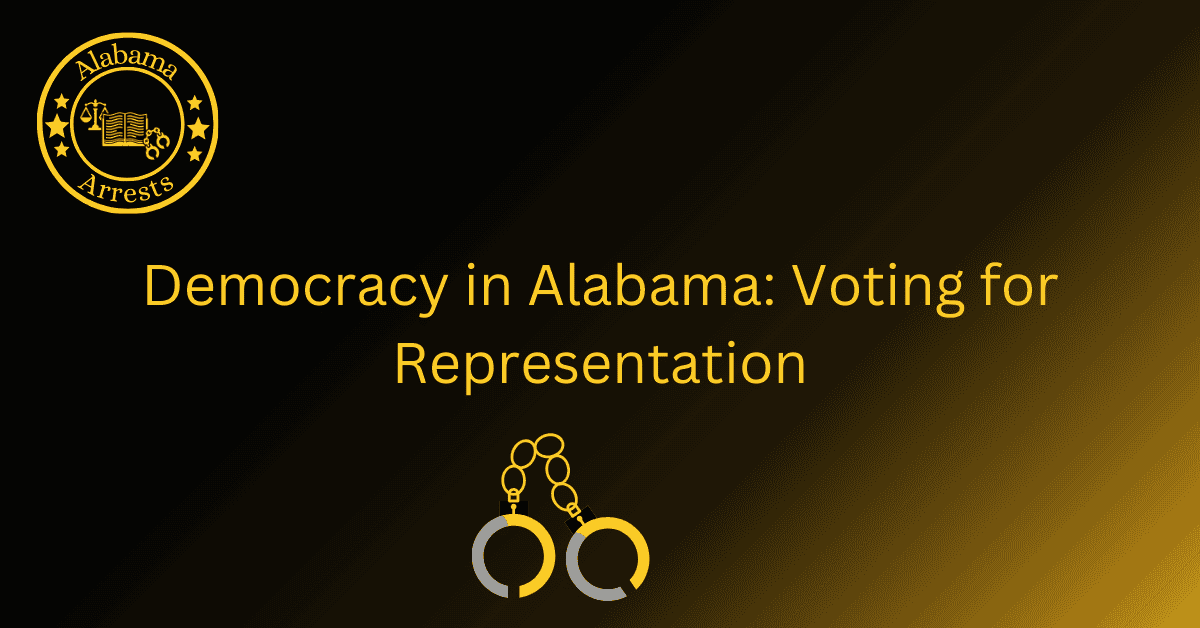Democracy in Alabama: Voting for Representation
Democracy in Alabama: Voting for Representation explores the rich history and current state of democracy in the state of Alabama. From its early beginnings as a frontier territory to its role in the Civil Rights Movement, Alabama has played a significant role in shaping the democratic landscape of the United States.
This comprehensive guide delves into the various aspects of democracy in Alabama, from the voting process and representation to the impact of gerrymandering and voter suppression. Through in-depth analysis and compelling narratives, readers will gain a deeper understanding of the challenges and triumphs of democracy in this diverse and complex state.
The Evolution of Voting Rights
Throughout its history, Alabama has witnessed significant milestones in the fight for voting rights. From the Reconstruction era to the present day, the state has been at the forefront of the struggle for inclusive democracy. This section explores the evolution of voting rights in Alabama, highlighting key moments and the individuals who fought for change.
Reconstruction and the 15th Amendment
Following the Civil War, Alabama faced the challenge of rebuilding its society and redefining its political landscape. With the ratification of the 15th Amendment in 1870, which prohibited the denial of voting rights based on race, African Americans in Alabama gained the right to vote. However, this newfound freedom was short-lived, as the state soon implemented laws and practices aimed at suppressing black voter turnout.
The Jim Crow Era
From the late 19th century to the mid-20th century, Alabama, like many Southern states, enforced strict segregation and discriminatory voting practices under the Jim Crow system. These laws, such as poll taxes, literacy tests, and grandfather clauses, effectively disenfranchised African Americans and other marginalized communities. The legacy of these practices continues to impact Alabama’s democratic landscape today.
The Civil Rights Movement
The Civil Rights Movement of the 1950s and 1960s brought about significant changes in Alabama’s voting rights landscape. From the Montgomery Bus Boycott to the Selma to Montgomery marches, activists and leaders fought tirelessly for equal voting rights. The Voting Rights Act of 1965, a landmark piece of legislation, aimed to dismantle barriers to voting and protect the rights of all citizens.
Challenges and Progress Today
While progress has been made, Alabama still faces challenges in ensuring equal access to the ballot box. Issues such as gerrymandering and voter suppression efforts continue to impact the democratic process. However, grassroots organizations, advocacy groups, and concerned citizens are actively working to address these challenges and create a more inclusive democracy in Alabama.
The Power of Representation
Representation is a cornerstone of democracy, and Alabama’s diverse population deserves to have their voices heard. This section examines the importance of representation in Alabama’s democracy, exploring the impact of redistricting, minority representation, and the role of local government.
Redistricting and Gerrymandering
Redistricting plays a crucial role in shaping political representation. In Alabama, as in many states, the process of redrawing district boundaries has not always been fair or transparent. Gerrymandering, the manipulation of district lines for political gain, can dilute the voting power of certain communities and perpetuate unequal representation. This section delves into the effects of gerrymandering and the ongoing debates surrounding redistricting reform.
Ensuring Minority Representation
Alabama is home to a diverse population, and it is essential that the voices of all communities are represented in government. This subsection explores the challenges and progress made in ensuring minority representation, highlighting the achievements of individuals who have broken barriers and advocated for greater inclusivity in politics.
The Impact of Local Government
While national politics often dominate the headlines, local government plays a crucial role in shaping democracy at the grassroots level. This section examines the importance of local government in Alabama, from city councils to county commissioners, and the opportunities for citizens to engage in the democratic process at a local level.
By exploring the various aspects of democracy in Alabama, this guide aims to provide readers with a comprehensive understanding of the challenges and triumphs this state has faced. From the fight for voting rights to the power of representation, Alabama’s democratic landscape continues to evolve, shaped by the actions of its citizens and the ongoing pursuit of a more inclusive democracy.
FAQs
What is democracy and why is it important in Alabama?
Democracy is a system of government where power is vested in the people, who exercise it through voting and elected representatives. It is important in Alabama because it ensures that every citizen has a voice and the right to participate in decision-making processes.
How can I register to vote in Alabama?
To register to vote in Alabama, you can visit your local Board of Registrars office or register online through the Alabama Secretary of State’s website. You will need to provide proof of identification and residency.
What are the voter ID requirements in Alabama?
In Alabama, voters are required to present a valid form of photo identification, such as a driver’s license, passport, or Alabama voter ID card, at the polling place. If you do not have a valid ID, you can obtain a free voter ID from your local Board of Registrars office.
What is the deadline to register to vote in Alabama?
In Alabama, the deadline to register to vote is 14 days before the election. Make sure to register before this deadline to ensure your eligibility to vote in the upcoming elections.
Can I vote by mail in Alabama?
Yes, Alabama allows for absentee voting by mail. To vote by mail, you must meet certain eligibility criteria, such as being out of the county on election day or having a physical illness or infirmity that prevents you from going to the polling place. You will need to request an absentee ballot from your local Absentee Election Manager.
What is gerrymandering and how does it affect democracy in Alabama?
Gerrymandering is the manipulation of electoral district boundaries to favor one political party or group. In Alabama, gerrymandering can impact democracy by diluting the voting power of certain communities or groups, leading to unequal representation and potentially distorting the democratic process.







